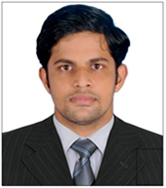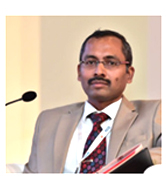M. Tech. Power Systems Engineering
M. Tech. Power Systems Engineering
For International Candidates
B.E. / B.Tech. in EEE / ECE / EIE / ICE / or Equivalent degree in relevant field with a minimum CGPA of 5.0 / 50% of marks.
- English as one of the subjects of qualifying examination
Documents Required for International Admissions
1. VISA
All the International students will require a student visa endorsed by this Institution for joining full-time courses. No other endorsement is acceptable. The visa should be valid for the prescribed duration of the course.
A visa is required for International students. Persons of Indian Origin (PIO), Overseas Citizen of India (OCI) who possess either OCI (Overseas Indian Citizenship) or PIO card do not require Indian Visa. OCI and PIO card gives them the freedom to visit India without a visa. OCI and PIO cards are a multi-purpose lifelong visa for visiting India. However, those PIOs who do not have PIO or OCI card have to apply for the student visa.
2. International Candidates should produce the following:
(i) Proof of age
(ii) Proof of nationality
(iii) 12th Grade mark sheet
(iv) Photograph
3. Application form with all details furnished.
4. Photocopies of the following
(I) International bank account passbook (front page photocopy)
(II) Passport copy of student.
5. Equivalence Certificate issued by the Association of Indian Universities (AIU)
6. Certificates of Educational Qualifications
10th Std/12th Std/Degree/Transfer Certificate / Migration Certificate (as applicable to specific programme).
7. Medical Fitness Certificate
8. Undertaking Duly Countersigned By Parent/Guardian.
Admission, Transfer and Change of Course
Admission to various programs will be subject to verification of facts as in the original certificates /documents of the candidates. Management reserves the right to cancel admission if any discrepancy is noted, even at a later point any time after the admission. Such a decision will be final and binding on the candidate.
Admission offered to a candidate who has been provisionally admitted to a programme will stand cancelled if he/she does not submit the relevant documents in original pertaining to admission (such as Mark Sheet, Transfer Certificate, Migration Certificate and Conduct Certificate, etc.) to the concerned Admissions Officer before the stipulated date. An International student who has been granted admission to a particular Programme shall not be allowed to change the Programme subsequently.
It is the responsibility of the candidates to ascertain whether they possess the requisite qualification for admission. If the candidates furnish mark sheets of the qualifying examination only in grades, the minimum marks pertaining to the grade obtained in the course will be taken into consideration while determining the marks in the subjects.
Contact:
Dr. P.Rathna
Director
Centre for International Relations
Mobile: +91 9080608686
Email: directorcir@crescent.education
Admission Brochure
Programme Educational Objectives:
- To develop competent and skilled power system engineers to meet the national and international industrial requirements
- To meet the day to day challenges faced by the power sector due to deregulation and to equip the students in power system software applications
- To meet the challenges of today’s clean energy sector and to contribute to the environmental social concerns
- To train the students to realistic industrial environment, meeting the modern engineering practices
Programme outcomes
- Engineering knowledge: Apply the knowledge of mathematics, science, engineering fundamentals, and an engineering specialization to the solution of complex engineering problems
- Problem analysis: Identify, formulate, review research literature, and analyze complex engineering problems reaching substantiated conclusions using first principles of mathematics, natural sciences, and engineering sciences
- Design/development of solutions: Design solutions for complex engineering problems and design system components or processes that meet the specified needs with appropriate consideration for the public health and safety, and the cultural, societal, and environmental considerations
- Conduct investigations of complex problems: Use research-based knowledge and research methods including design of experiments, analysis and interpretation of data, and synthesis of the information to provide valid conclusions
- Modern tool usage: Create, select, and apply appropriate techniques, resources, and modern engineering and IT tools including prediction and modeling to complex engineering activities with an understanding of the limitations
- The engineer and society: Apply reasoning informed by the contextual knowledge to assess societal, health, safety, legal and cultural issues and the consequent responsibilities relevant to the professional engineering practice
- Environment and sustainability: Understand the impact of the professional engineering solutions in societal and environmental contexts, and demonstrate the knowledge of, and need for sustainable development
- Ethics: Apply ethical principles and commit to professional ethics and responsibilities and norms of the engineering practice
- Individual and team work: Function effectively as an individual, and as a member or leader in diverse teams, and in multidisciplinary settings
- Communication: Communicate effectively on complex engineering activities with the engineering community and with society at large, such as, being able to comprehend and write effective reports and design documentation, make effective presentations, and give and receive clear instructions
- Project management and finance: Demonstrate knowledge and understanding of the engineering and management principles and apply these to one’s own work, as a member and leader in a team, to manage projects and in multidisciplinary environments
- Life-long learning: Recognize the need for, and have the preparation and ability to engage in independent and life-long learning in the broadest context of technological change
Programme Specific Outcomes
- Ability to provide solutions for power system problems to meet global requirements
- Have ability to apply various industrial power system software packages in the areas of planning and operation of power systems
- To have a substantial knowledge, in emerging areas such as deregulation of power system, smart grid and clean energy
Salient features
- NAAC Accredited Institution
- Well Qualified Faculty Members
- State of the Art Laboratories
- Special electives offered by industry professionals & faculty from abroad
- Choice Based Credit System
- Self Learning & Industry Internship
- MoU with Industries & International Universities
- Industry standard licensed software for power system simulation
- Provision to carry out project work in the industry during project semester
- Courses in Emerging Technologies
- Credit Transfer from NPTEL / MOOC / SWAYAM courses
- Scholarship available for meritorious students
- Good Placement opportunities
Testimonials

Muhammed Fasil T.P., 2013-15, M.Tech Power Systems Engineering, Assistant Researcher, Petroleum Institute, Abu Dhabi


